Dispatches From Cairo: Clinton’s Clumsy Visit
The top U.S. diplomat wooed Egypt's new government but wowed very few among a proud people determined to find their own way as a democracy.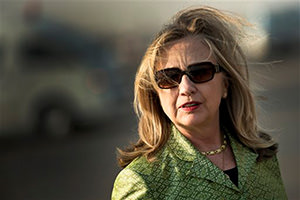
We asked Lauren Unger-Geoffroy, an international artist who lives in Cairo, to share her perspective of life in Egypt after the revolution. In this entry, she writes about Washington’s attempt to influence Egypt’s new democracy.
“Denial ain’t just a river in Egypt.” — Mark Twain
Oh Hillary, if only you had listened when I and others explained that any overt interference by the United States in Egypt’s fledgling democracy would be badly received.
Meeting Saturday with Mohamed Morsi, Egypt’s new president, and Sunday with Gen. Mohamed Hussein Tantawi, head of the Supreme Council of the Armed Forces, Clinton attempted to exercise financial and military influence by demanding that Egypt conform to Washington’s political agenda.
This big-footed gesture was met here with angry protests and marches. The convoy transporting Clinton and other U.S. diplomats was pelted with garbage and old shoes as it made its way through demonstrators from all sides of Egypt’s political arena. The protesters bore signs saying, “You can keep your stinking money, Hillary!” “Hillary, go home, Bill is with Monica,” “USA cannot buy Islam. Allah is great,” and “USA=Israel.” Ironically united liberals, secularists, Christians and Islamists of all orientations joined in reaction against “U.S. bullying.”
Most of the outcry was not from Islamic fundamentalists, but from Egyptian Copts and liberals, disgusted by what they perceived as a betrayal by the incoming government and U.S opportunistic pandering to the newly empowered Islamists. However, Islamic elements, too, strongly opposed Clinton’s colonialist patronizing, so thinly concealed under a tissue of American “support for democracy.”
By trying to leave a big U.S. boot print on this nation, Washington has raised the ire of almost all Egyptians, despite the superficial diplomatic agreement that the American delegation reached with the Muslim Brotherhood government.
The people of Egypt do not examine or care about the fine points of the U.S. worldview. They have an intense national pride and a new hunger for self-determination that are endangered by foreign agendas.
Very few here support the Americans’ invasive gestures and demonstrations of dominance. Contrast the Clinton visit with King Abdullah’s meeting with Morsi in Saudi Arabia last week in which the monarch discreetly promised $4 billion to Egypt, without strings attached. That encounter did not cause even a ripple of upset in Egypt.
Clinton has unnecessarily put herself and the United States at risk of failing yet again in the Middle East. The vast difference in values and traditions between the two countries is a gulf that can drown American diplomats.
I wonder what the U.S. State Department makes of the niqab-only TV station that will open Friday, the first full day of Ramadan in the Middle East? It will be a channel run by and featuring only women in full, face-covering black niqab and will be devoted to educating Muslim women about their religion. Broadcasts will deal principally with what the station claims is the Quran-ordered wearing of the niqab, with married life and with teaching women the Sunna (practices) of the Prophet Muhammad.
El-Sheika Safaa Refai, director of the channel, which is named Mariya, stated that any woman who does not wear the full face veil is “uncovered” and that the niqab is a “red line” that must not be crossed.
Most women in Egypt wear the hijab head cover, a regional as well as Islamic clothing style that varies from a decorative accessory to a modesty covering. All head covering was banned on Egyptian national TV channels during the era of deposed President Hosni Mubarak.
Refai and others at the station refused to reveal their source of funding, though some media reports say the money comes from Saudi Arabian Wahhabi fundamentalists.
Up to this point, Egyptian liberals and moderates generally have resisted, with success, the fundamentalist pressures. Many moderate Muslim women, along with secular and non-Muslim women, persist in not covering their hair and wearing short sleeves and skirts. Polls and surveys continue to reject imposition of a Shariah system of government laws and to prefer freedom of expression. Also, the constitutional committee now at work is being kept representative of a wide group of interests.
The center of Sunni Islam jurisprudence, the great Al-Azhar Mosque, whose grand imam is Grand Sheik Ahmed al-Tayyeb, a liberal, Western-educated intellectual known for his animosity to ultraorthodoxy, is designated in the first finished articles of the new constitution to be the nation’s Islamic authority and, independently of the government, is supposed to oversee its own budget and appointment of its grand imam. A groundbreaking document, called the Azhar Declaration, published last year by Sheik al-Tayyeb, proclaims that the institution fully supports notions of democracy, freedom of religion and thought, and other liberal values.
However, some Egyptians fear that even if Salafis (fundamentalists) fail to implement hard-line Shariah law in the constitution, they will enforce it themselves. On June 25 a young man standing with his fiancée in Suez was stabbed to death by three religiously conservative men who reportedly considered themselves morality enforcement policemen.Having traveled to France from Cairo a few days ago, I saw a small group of Saudi Wahhabis (members of an extreme form of Islamic fundamentalism popular in Saudi Arabia and spreading among Salafis) praying in fierce unison at Paris’ Charles de Gaulle Airport, their movements precise, their flowing headdresses and white robes impeccable, their beards long and scraggly, their eyes burning with hostility as they looked over the arrivals from Cairo, some of whom were women with uncovered faces or men who did not “control their women” or interrupt the line to turn toward Mecca to pray.
Behind me were two Egyptian men, well dressed and with evidence of their piousness on their foreheads [a mark caused by habitually pressing one’s head to a prayer rug].
“God preserve us, they are going to Egypt,” said one, half-joking.
“They are Saudi, don’t you think?” asked the other.
“Must be.”
“Anyway, they are Wahhabi.”
“God save Egypt.”
They smiled at me, and we all made the “yikes” expression and laughed nervously.
“Well, the good news,” said a young man in a cap and a galabaya over his jeans, “is that our miraculous ex-President Mubarak who was dead and alive so many times and recently clinically dead is now feeling much better and well enough to leave the hospital.”
A 30-something man next to him with the cross tattoo of a Coptic Christian on his wrist lifted his hand for a high-five, and the other slapped his palm as we all laughed.
Secretary Clinton, please don’t think these Egyptians are waiting to party until you grant them permission.
As Ramadan begins this week, the Muslims of the Arabic Republic of Egypt will be one with more than a billion from different sects across the world, in unison, in passion, in self-discipline, in deprivation and reward, in brotherhood, in study of the Quran, in faith, in prayer, in love, in joy, in celebration every night with family, and in the satisfaction and peace of submission. People will be fasting and kneeling to pray together by the thousands in the streets, rich beside poor.
Ms. Clinton, don’t come here again offering food and weapons and happiness and the status of being owned by Uncle Sam to these proud people. You cannot predict the response to your loud and graceless gestures. You cannot dance to this music. There are genies here; it is written in the Quran.
These are people you cannot buy.
Your support matters…Independent journalism is under threat and overshadowed by heavily funded mainstream media.
You can help level the playing field. Become a member.
Your tax-deductible contribution keeps us digging beneath the headlines to give you thought-provoking, investigative reporting and analysis that unearths what's really happening- without compromise.
Give today to support our courageous, independent journalists.

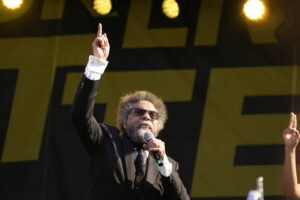
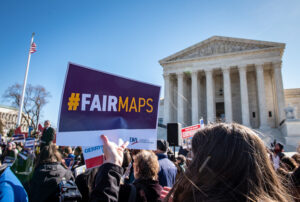
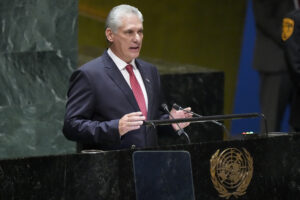
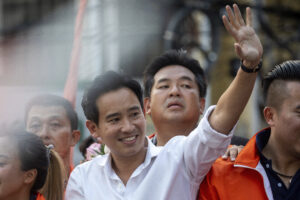

You need to be a supporter to comment.
There are currently no responses to this article.
Be the first to respond.